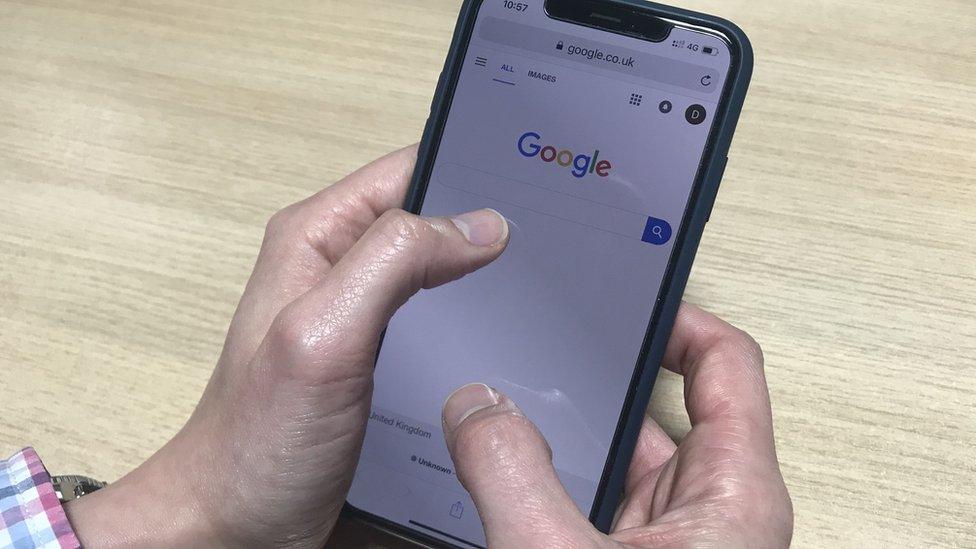Anti-Semitism: Wales tops UK Google searches, report says
- Published

The report said someone who searched for "Jew jokes" was 100 times more likely to also search for racist jokes about black people
Wales has the highest proportion of anti-Semitic Google searches in the UK, a report has said.
Analysis for the Community Security Trust (CST) included search terms such as "Jews evil, kill Jews and die Jews", external.
Google estimated the area, based on the user's IP address or phone location, and searches in Wales were 7.2% above average for the population size.
CST's Dave Rich said it was hard to say why, but fewer Jewish communities could mean more people were uninformed.
By comparison, searches in England were 1.9% above average, Northern Ireland was 2.4% below average and Scotland was 6.7% below average.
There are about 170,000 anti-Semitic Google searches in the UK each year, but CST did not include a baseline figure against which these averages were measured.
Dr Rich, CST's head of policy, said: "It's hard to speculate about why it may have been higher in Wales - it could be because the Jewish communities are smaller so there's perhaps more ignorance - a lot of racism is based on ignorance."
Hidden hate: what Google searches tell us about antisemitism today was compiled by Seth Stephens-Davidowitz, a former data scientist at Google, for the CST and Antisemitism Policy Trust.

The report said Netta's Eurovision win for Israel in 2018 sparked a 30% spike in anti-Semitic searches online
It looked at search terms between 2004 and 2018, including Jew combined with words such as greedy, cheap, racist and ugly.
Mr Stephens-Davidowitz admitted it would not capture every instance of anti-Semitic searches, but "provides a reliable baseline measure".
He also acknowledged it was "impossible to know for sure that any given search is made by a person with anti-Semitic attitudes, as it is always possible someone was making a search out of curiosity rather than as a result of malign intent".
His research focused on negative stereotypes, violent thoughts, racial epithets and jokes.
Anti-Jewish slurs such as yid, kike and heeb were examined - but research for the report showed the majority of those searches were people looking for the definitions of the words "perhaps because people had heard it being used about Jews and had not come across it before".
Dr Rich, CST's head of policy, said: "Internet companies have a really important part to play in directing people towards or away from hate content. These companies can use their power for good or for ill."
A Google spokesman said: "We partner with organisations in the UK who work to tackle hate speech including CST and Stop Hate UK.
"Autocomplete helps you get to the information you are looking for as quickly as possible. For certain issues, including hateful predictions against groups and individuals based on religion we have developed policies to exclude such terms."
- Published21 January

- Published25 July 2018

- Attribution
- Published7 February 2018

- Published5 September 2018
